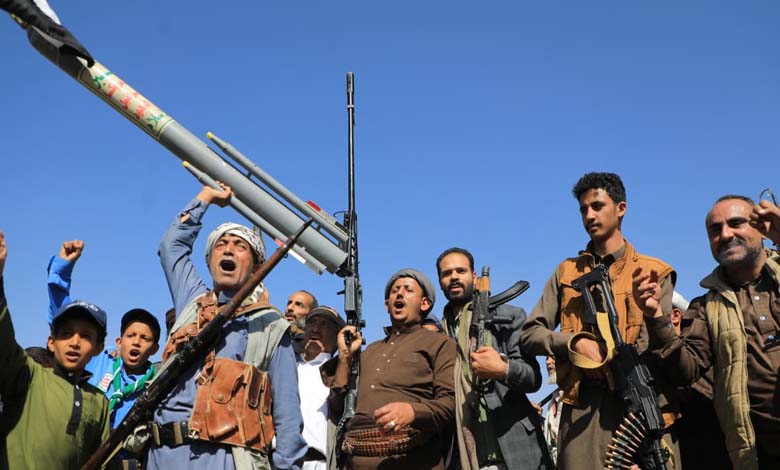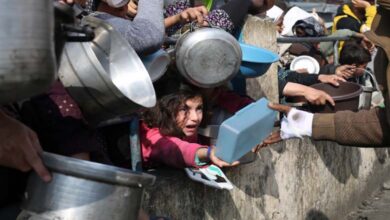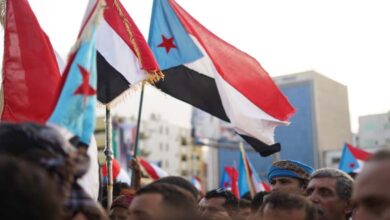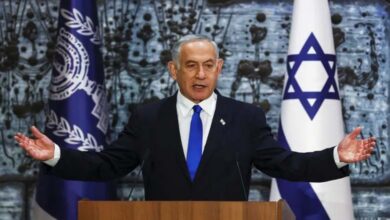The Houthis Struggle to Avoid al-Assad’s Fate… What Are They Doing?

On Tuesday, the Houthi movement announced its “immediate” readiness for a political settlement to end the conflict in Yemen. This urgency seems to stem from fears that the Houthis are attempting to circumvent by embracing the path of peace, particularly in light of the blows suffered by the “Axis of Resistance” in Gaza, Lebanon, and especially Syria, alongside the decline of Iranian influence.
-
“The Bells of Damascus” Alarm the Houthis: Yemeni Calls Intensify to “Uproot the Militias”
-
After Al-Assad’s Fall… Syria Closes Its Doors to the Houthis
According to the London-based Al-Arab newspaper, the Houthis see little benefit in continuing military escalation in Yemen or using the threat of targeting Saudi and Emirati oil facilities to serve Iran’s agenda of pressuring Gulf states and sending messages to the United States and Israel. The situation has shifted with Iran’s declining role and the rapprochement between Tehran and the Gulf countries.
Furthermore, the Ansarallah movement, according to the same source, does not want to find itself caught in the crossfire of an internal war and an external one, as U.S. strikes on sites in Sanaa continue and Israel’s strong attacks might recur if the Houthis persist in their prominent role supporting Hamas and Hezbollah.
-
Using an Iranian drone… a horrific massacre committed by the Houthis in Taiz
-
The Houthis escalate hostility towards Israel as the West responds with harsh strikes: What’s the story?
Although the Houthis seek to differentiate themselves from Hamas and Hezbollah, the rapid collapse of Syrian President Bashar al-Assad‘s regime may have prompted them to consider an internal de-escalation by issuing statements supportive of a political settlement. Their goal is to preempt any internal Yemeni attempt, supported externally, to replicate a military option against Ansarallah at a time when they appear isolated due to the difficulty of receiving Iranian support.
The Houthis fear that Turkey and Qatar might rely on the reformist Al-Islah party, affiliated with the Muslim Brotherhood, to replicate what Hay’at Tahrir al-Sham did in Syria by launching an attack on Sanaa. A similar strategy might be ready, gaining acceptance from some regional countries and the United States, as part of dismantling Iranian influence in the region.
-
The Houthis are preparing to leave Hodeidah… What are they doing?
-
A New Deal between the Houthis and Al-Qaeda… Details
The first signs of this plan surfaced through recent statements by Abdelrazak al-Hajri, a leader of the Al-Islah party. He called for overcoming past divisions, describing this as a “national necessity to defeat the Houthi coup and restore the state.”
While the Houthis attempt to portray themselves as a strong party, their sudden offer to announce readiness for a political settlement reflects data or reports indicating a significant internal movement that capitalizes on their isolation, following the defeats suffered by other Iranian-backed factions, according to Al-Arab estimates.
-
Due to the Brotherhood and the Houthis… Disasters and Tragedies on the Roads of Taiz
-
Following in Daesh’s Footsteps… The Houthis Spoil Yemeni Celebrations
For nearly two and a half years, Yemen has seen a lull in a war that began about a decade ago between forces loyal to the government, supported by a Saudi-led Arab military coalition, and Houthi forces, backed by Iran, who have controlled several provinces and cities, including Sanaa, since September 2014.
-
Growing concerns about the Houthis turning Yemen into a battleground for Iran’s wars… Details
-
The Houthis’ Catastrophe Enters Its Second Decade: A Fireball Burning Yemen












